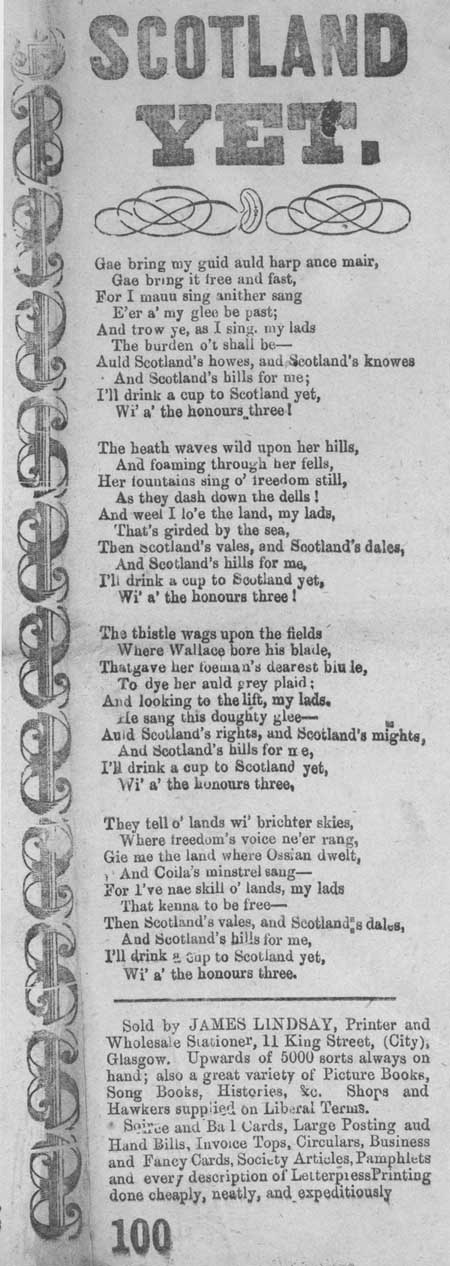Commentary
Verse 1: 'Gae bring my guid auld harp ance mair, / Gae bring it free and fast, / For I maun sing anither sang / E'er a' my glee be past; / and trow ye, as I sing, my lads / The burden o't shall be - / Auld Scotland's howes, and Scotland's knowes / And Scotland's hills for me; / I'll drink a cup to Scotland yet, / Wi' a' the honours three!' This broadside was published by James Lindsay of King Street in Glasgow. It is not dated. 'Scotland Yet' was written by the poet Henry Scott Riddell (1798-1870), who became a minister in Teviotside and wrote the poem while out for a walk in a lonely glen at Teviothead. It is a song written as a toast to the beauty, history and heritage of Scotland. The subject that unites the verses is the importance of freedom, a theme that has been recurrent in Scottish culture from the Declaration of Arbroath in 1320 to the film 'Braveheart' in the 1990s. One of the champions of an older, freer Scotland that is mentioned is Ossian, the 3rd century ancient Gaelic poet whose work was 'translated' by James Macpherson (1736-96). Like that of most countries, Scotland's popular image is based as much on myth and fiction as it is on historical fact. Early ballads were dramatic or humorous narrative songs derived from folk culture that predated printing. Originally perpetuated by word of mouth, many ballads survive because they were recorded on broadsides. Musical notation was rarely printed, as tunes were usually established favourites. The term 'ballad' eventually applied more broadly to any kind of topical or popular verse.
View Transcription | Download PDF Facsimile
|
 |
Probable period of publication:
1860-1890 shelfmark: L.C.Fol.70(73b)
 View larger image
View larger image
|


